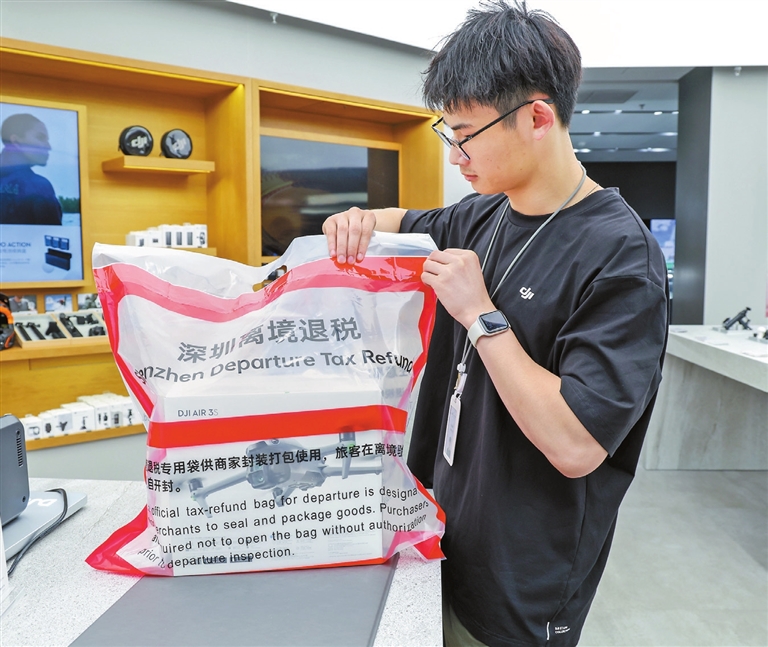
SHENZHEN has become the first city in China to roll out a streamlined “one sheet, one bag, one code” value-added tax (VAT) refund service for eligible cross-border tourists. The measure, rolled out Monday at all 1,640 tax refund stores across the city, lets cross-border shoppers clear customs without opening sealed shopping bags, speeding departures and improving their shopping experience. Under the new system, each tax refund form is paired with a tamper-evident plastic pouch and a unique QR code. Stores seal purchased goods on the spot, print a barcode containing the refund data, and attach it to the pouch. Customs officers at departure checkpoints simply scan the QR code, verify the pouch is intact, and let travelers pass, eliminating the need to unpack items for inspection. Officials say the digitalized process reduces inspection workloads for customs and cuts waiting times for travelers, freeing up time that visitors can spend on dining, hotels, or additional sightseeing in the city. Shenzhen is now home to 1,640 tax refund stores, 12 “refund-upon-purchase” shopping centers, and six checkpoints offering the tax refund service, including the Futian, Shenzhen Bay, and Luohu checkpoints. From January to August, sales of tax-refundable goods in Shenzhen reached 740 million yuan (about US$104 million), a 189% increase year on year, according to official data. Homegrown brands such as DJI and Huawei accounted for 38.8% of refund transactions in the city — the highest share nationwide. Nationally, the number of tax refund stores for cross-border visitors exceeded 10,000 by the end of August, the State Taxation Administration reported. In the first eight months of the year, the number of tourists claiming tax refunds rose 247.8% year on year, underscoring how departure tax refunds are converting rising inbound travel into stronger consumer activity. China launched its departure tax refund policy for cross-border travelers in 2015. In April this year, the government introduced a package of measures — lowering the minimum purchase threshold, raising the ceiling for cash refunds, expanding participating stores, and broadening the range of eligible products — that officials say are helping to make spending by inbound tourists a new driver of domestic economic activity. (SD News) | 
